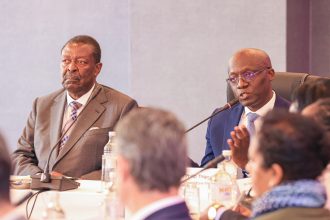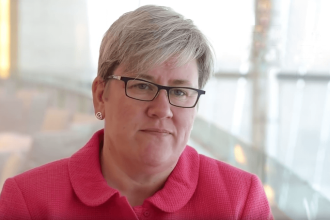By Jeannette Birir
The African Energy Security Coalition (AESC) has expressed satisfaction with the outcome of the COP29 climate negotiations in Dubai, UAE. The Coalition, which advocates for a pragmatic and equitable energy transition in Africa, welcomed the conference’s nuanced stance on the contentious issue of fossil fuel phaseout, arguing that it aligns with Africa’s unique developmental and energy needs.
A Balanced Decision
One of the most anticipated topics at COP29 was the global call to phase out fossil fuels, championed by many climate activists and developing nations.
However, the final agreement refrained from explicitly mandating a fossil fuel phaseout. Instead, it emphasized a “phasedown” of unabated fossil fuels and a greater focus on renewable energy adoption and equitable transitions.
This language resonated with AESC’s long-standing position that Africa requires a tailored approach to energy transition, one that balances climate ambitions with the continent’s socio-economic realities.
“A blanket fossil fuel phaseout would have been disastrous for Africa, where over 600 million people still lack access to electricity,” said Herman Opondo, Chair of the African Energy Security Coalition. “We applaud the COP29 outcome for recognizing the complexities of energy transition in developing regions and allowing room for dialogue and gradual transformation.”
Fossil Fuels and Development
For AESC and its member organizations, fossil fuels remain a cornerstone of economic and industrial development in many African countries. Several African nations, including Nigeria, Angola, and Mozambique, rely on oil and gas revenues to finance infrastructure, healthcare, and education. Additionally, natural gas is increasingly being promoted as a “transition fuel” to bridge the gap between coal-based energy and renewables.
The Coalition has consistently argued that African countries should not be penalized for harnessing their fossil fuel resources while developed nations continue to benefit from theirs. At COP29, African negotiators highlighted this disparity, emphasizing the need for a fair share of the remaining carbon budget to accommodate Africa’s growth trajectory.
“We cannot ignore that fossil fuels have fueled the industrialization of wealthy nations,” Opondo added. “Africa deserves the opportunity to chart its own path towards sustainable development, leveraging its fossil resources alongside investments in renewable energy.”
The Role of Renewables
While AESC remains firm on the need for a cautious approach to fossil fuel phaseout, the Coalition is also an advocate for scaling up renewable energy on the continent. Africa is home to vast renewable energy resources, including solar, wind, and hydroelectric power. The COP29 outcome included several provisions aimed at bolstering renewable energy investments in developing countries, with commitments to mobilize financing and technology transfers.
“The future is undoubtedly renewable, and Africa is poised to be a global leader in clean energy,” said AESC spokesperson Maria Selma. “But this transition requires time, resources, and capacity building. COP29’s emphasis on financing and equity in transitions is a step in the right direction.”
Equity at the Heart of Climate Negotiations
Equity remained a central theme at COP29, with developing nations, including Africa, advocating for financial support, capacity building, and technology transfers to facilitate their energy transitions. The Loss and Damage Fund, operationalized at COP29, was another highlight for Africa, as it promises to provide much-needed resources to address the impacts of climate change in vulnerable regions.
The African Energy Security Coalition lauded these developments but called for the speedy implementation of financial pledges. “Commitments on paper are not enough,” said Ms Selma. “We need tangible actions to ensure that the most vulnerable communities benefit from climate finance.”
Looking Ahead
As the dust settles on COP29, the African Energy Security Coalition remains committed to championing a just and equitable energy transition for the continent. While the lack of explicit language on a fossil fuel phaseout may be a disappointment for some climate activists, AESC believes it represents a pragmatic middle ground that balances climate action with development priorities.
“Global energy transition is not a one-size-fits-all solution,” said Opondo. “Africa’s energy journey must consider its unique challenges and opportunities. COP29 has given us the platform to pursue this balance, and we are determined to make the most of it.”
The COP29 outcome underscores the importance of dialogue, equity, and tailored approaches in addressing global climate challenges. For Africa, the path forward involves leveraging its natural resources, embracing renewables, and ensuring that its energy transition supports both climate goals and socio-economic development. The African Energy Security Coalition will continue to advocate for Africa’s voice and interests in the global climate arena.




